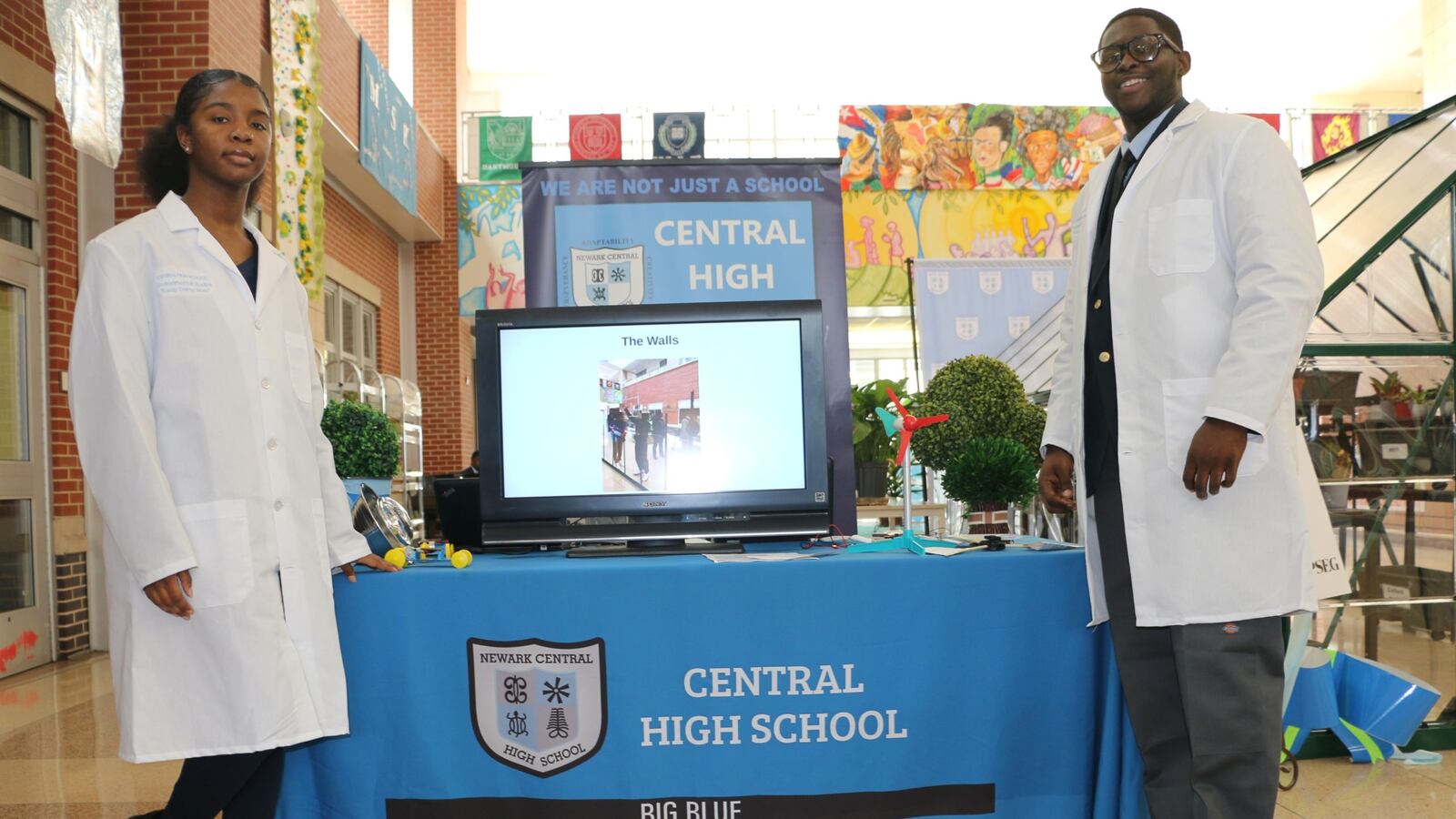Growing up in Newark, young people are surrounded by environmental hazards — from lead-tainted water to polluted air. Now, more students will be able to help identify solutions.
Newark Public Schools is expanding an environmental studies program at Central High School, part of a district-wide effort to establish career-training programs inside every comprehensive high school. Through the program, students will be able to earn college credits as they develop skills that could help them one day tackle local threats, such as contaminated water, or global issues, such as climate change.
“We are owning the responsibility to make sure that we preserve and conserve the world for our future and the generations to come,” said Principal Sharnee Brown at the program’s launch on Tuesday.
Newark’s new vocational programs, which the district is calling “academies,” are the centerpiece of Superintendent Roger León’s plan to reinvigorate the comprehensive high schools. Those schools tend to have a harder time recruiting students than the district’s selective magnet high schools and many of the campuses are low-performing. But León is betting that the academies will spark new interest in the schools while preparing students for college and lucrative jobs.
Each academy will expose students to a specific career field through classes and workplace experiences, such as internships and site visits. The academies will focus on law and public safety at Barringer High School, teaching at East Side, engineering at Malcolm X Shabazz, allied health services at Weequahic, and business and finance at West Side.
“When students in our great city begin to make the important decision of what high schools they would like to attend,” León said, “they will look at the premier academies and see that their areas of interest can be studied while in high school.”
The district matched each comprehensive school with a magnet school to help develop the academies, and brought in industry and higher-education partners to support each campus. Central’s partners are the Newark-based energy company PSE&G; Kean University, whose campus is just south of Newark; and Science Park, a magnet high school also located in Newark’s Central Ward.
Central students can already take classes in biology, botany, and environmental engineering and data analysis through the school’s existing environmental studies program. The revamped program will focus on sustainability, allowing students to take classes and conduct research as they explore threats to the environment and new technologies that can protect it. Their studies could set them up for possible jobs as climate change analysts, renewable energy engineers, and landscape architects, the district said.
Kean faculty members will help design the new courses so they are aligned with ones offered at the university. Students will be able to earn up to 12 credits from Kean and receive training in workplace health and safety.
“There’s no better time to be inspired to go into the environmental science field or environmental studies than now,” said Daniela Shebitz, executive director of Kean’s School of Environmental and Sustainability Sciences. “We can find ways to protect nature even in our own backyard.”
Central 12th graders Joshiah Gillens and Miah Shepard have done just that. As environmental studies students, they studied Newark’s lead crisis, visited one of the city’s water-treatment facilities, and helped grow beets, cabbage, and carrots in the school’s garden before distributing the produce to community members.
Shepard said the program gave her a new perspective on epidemiology, the field she hopes to work in studying health and disease patterns among groups of people.
“When you sustain the earth,” she said, “that’s the public health.”
Gillens, who plans to study biology in college, said the program made clear how humans can wreck the earth. But it also inspired him to find ways to protect it.
“Ultimately I want a healthy community,” he said. “Becoming a guardian is part of my environmental citizenship.”


